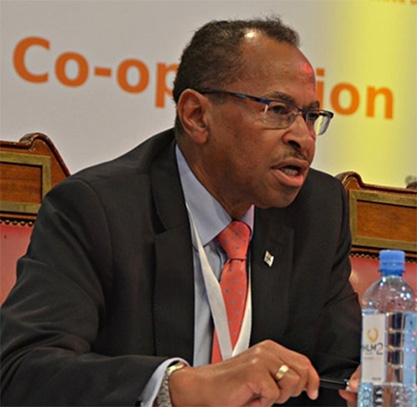World Milk Day 2024 Report – Celebrating Dairy’s Vital Role in Nutrition and Sustainability
This year, on June 1, we celebrated the vital role that dairy plays in delivering…

During this time, ILRI has been involved in important discussions on the development agenda, including:
Smith participated in a panel discussion highlighting the essential role of business in achieving the Sustainable Development Goals (SDGs) and providing guidance for how governments and development partners can support responsible, inclusive and sustainable business.

Addressing the long term shortfalls in development assistance for livestock is also important. Although livestock represents 40-60% of the agricultural GDP in most countries, it receives on 4% of development funding. This is despite the fact that livestock is often an early portal of entry to food production. While access to land for fields may often be expensive or difficult to obtain, having a cow or a chicken can mean food for the household and regular income without waiting for harvest. With this in mind, we prepared a donor strategy for the GLAD project that intersects with the pressing issues of climate change, women in agriculture, and social stability.
Please see the ILRI blog for more information: Livestock opportunities for responsible, inclusive and sustainable business-for-development partnerships
‘. . . International Development Secretary Penny Mordaunt announced the new UK aid research, which is being carried out by international organisation, CGIAR, during a joint visit to the University of Edinburgh with Bill Gates.
‘The Bill & and Melinda Gates Foundation is an important partner in international research and announced further investment in UK based livestock R&D during the visit. . . .
‘New ideas, cutting edge science and innovative partnerships with organisations like the Bill & Melinda Gates Foundation will help Britain create a healthier, more secure and prosperous world for us all.
Please see the ILRI blog for more information: DFID/UKAid fund British, ILRI, African genetics research to advance African livestock development